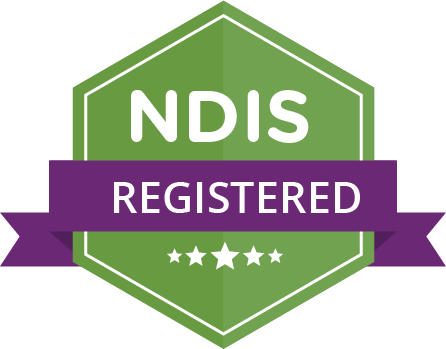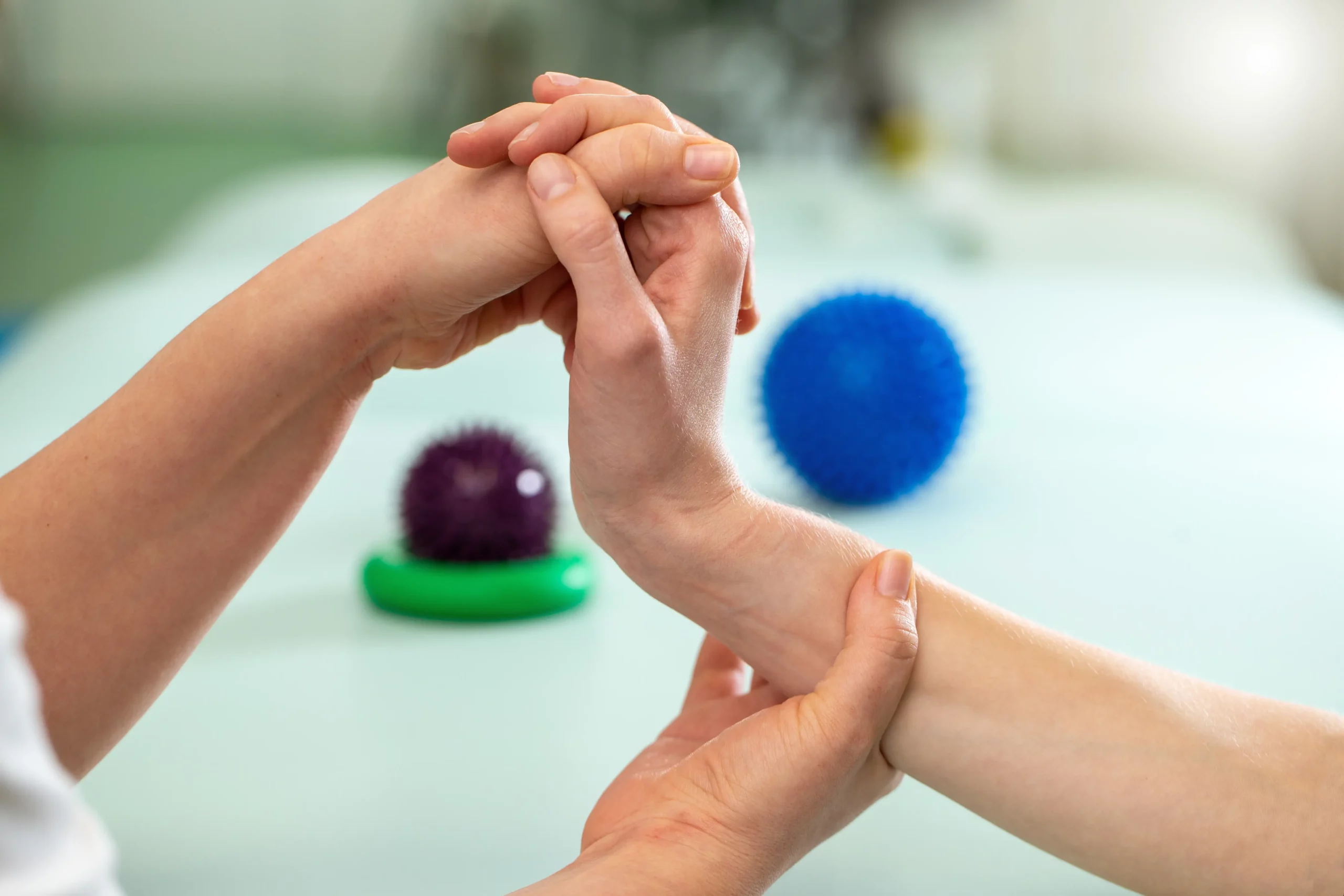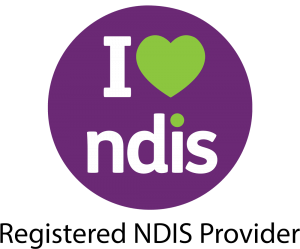NDIS Occupational Therapy
Rediscovering your abilities, redefining your life
Living with a disability is tough. It’s even harder when others don’t understand your daily struggles. Everyday tasks pose a challenge not just for your body but also for your mental well-being. Daily activities shouldn’t feel like hurdles; they should be stepping stones toward a better you. If daily tasks feel like a challenge, there’s a support tailored just for you. NDIS Occupational Therapy is more than just a service – it’s a process that aims to make your daily life smoother, more enjoyable, and more fulfilling.






Turn small wins into long-term progress
It’s frustrating when simple tasks like moving from one place to another seems impossible, isn’t it? It’s even worse when you’re giving your all yet you’re not seeing any improvements. You’re right – living life with limitations doesn’t make for a fulfilling life.
That’s exactly why a good support system should not only be about quick fixes. It goes beyond just getting through the day; it’s about making each activity into a small win for long-term progress. The focus is not only to complete daily activities and tasks but to empower you for improved independence, confidence, and sense of self.

With the right therapist, the right steps become clear
Getting a therapist is already a huge step. The last thing you want is to be left in the dark about the whole process and progress. Having a partner who listens, communicates openly, and sees your journey as important as reaching the goal is a must for success. The right therapist makes sure you understand each step of your NDIS plan, celebrates your wins, and guides you along the way. This is progress made personal.
NDIS Occupational Therapy
What our participants had to say
Here’s the kind of support you can get:
Occupational therapy covers a wide range of support, from daily activity assistance to community and social participation. Explore and take advantage of the common options available for participants like you.
Focuses on helping you perform daily self-care tasks such as bathing, dressing, eating, and grooming.
This involves more complex daily tasks, including managing your finances, cooking, shopping, and using transportation.
Occupational therapists may work with you in educational settings to address challenges related to learning, attention, and participation in academic activities.
This area focuses on improving your ability to engage in work-related tasks, whether in a vocational or volunteer capacity.
Occupational therapy helps you participate in meaningful and enjoyable recreational activities, boosting social interaction and relaxation.
This involves addressing difficulties related to sleep patterns and promoting healthy rest routines.
Occupational therapists assist you in developing and maintaining meaningful relationships, improving social skills, and participating in community activities.

You're the decision-maker, not just the participant
In this kind of therapy, teamwork is key – having a say in how your care goes is really important. You’re not just along for the ride; it’s a team effort. With a personalised NDIS occupational therapy plan, you’re picking a way of doing things where your thoughts count. Your likes, worries, and what you want from therapy become a big part of the plan. This way, your therapy is more about what matters to you, making it more interesting and working towards the things you want to achieve.
NDIS Occupational Therapy
Experience the support you need to feel empowered and confident everyday.
Therapy with empathy — because your emotions matter
Therapy isn’t only about overcoming physical obstacles; it’s about connecting with your emotions. These feelings are a big part of your journey to better health. The trouble is, many therapists don’t pay enough attention to this, making you feel like they just don’t get it. Finding a therapist who really listens to how you feel is key. It’s about getting support that understands you, not just your condition. Let’s work together to focus on both your physical and emotional needs, helping you move towards a happier, healthier you.
Need help? Learn More about SHCS
Questions around NDIS Occupational Therapy
How is NDIS occupational therapy different from other therapies?
NDIS occupational therapy is designed just for people covered by the National Disability Insurance Scheme (NDIS). It’s not like general therapies – it’s all about you and what you need. The focus is on making your everyday skills better, helping you be more independent, and dealing with challenges that match your NDIS goals. It’s not just about getting better; it’s about feeling more in control and achieving things in your NDIS journey.
Can I choose my NDIS occupational therapist?
Absolutely! NDIS believes in letting you choose what’s right for you. You have a say in picking a therapist who gets you and understands what you need. It’s important to find someone who fits your goals and makes you feel at ease. So, explore different therapists, ask questions, and choose the one that feels right for your journey.
What specific challenges does NDIS occupational therapy address?
NDIS occupational therapy can help with various challenges. Whether it’s moving better, talking better, or dealing with behaviours, it’s about what you need. It goes deeper into your situation to give you the right support. From things like sensory issues to using helpful tools, the therapy adapts to you, making sure it covers everything that matters to you.
How often should I attend NDIS occupational therapy sessions?
How often you go to therapy depends on what you need. Your therapist will talk to you and decide what works best. Some people go every week, while others find every two weeks or once a month is enough. It’s about finding the right balance – enough support without it feeling like too much.
Can NDIS occupational therapy help with building independence?
Absolutely. NDIS occupational therapy is all about making you more independent in different parts of your life. It’s not just about getting by; it’s about giving you the skills and confidence to handle things on your own. Your therapist will work on things that directly help you be more independent, so you can feel more in control and do more on your own.
How long does it take to see results from NDIS occupational therapy?
It’s different for everyone. Some people see changes in a few weeks, while others might take a few months. NDIS occupational therapy is like a journey – you go at your own pace. It’s important to talk to your therapist regularly to make sure you’re on track and adjust things as you go along.
Are there specific activities I can do between therapy sessions to enhance progress?
Definitely. Your therapist might suggest things to do between sessions that match your goals. It could be simple exercises, routines, or tasks that help with what you’re working on. Doing these things between sessions is like extra practice – it can really help you make progress.
How does NDIS occupational therapy incorporate family and caregivers?
Family and caregivers are a big part of NDIS occupational therapy. Your therapist might involve them in sessions to understand more about your support network. They can also get tips on how to help you outside of therapy, creating a supportive environment for you.
Can NDIS occupational therapy assist with social skills and communication?
Absolutely. NDIS occupational therapy knows how important it is to talk and connect with others. The therapy might include activities and ideas to make your social skills and communication better. It’s all about helping you feel more confident in social situations.
How can I advocate for myself within the NDIS occupational therapy process?
Advocating for yourself means speaking up about what you want. Tell your therapist what you like, what you want to achieve, and any worries you have. Be part of deciding what you want from therapy. Don’t be afraid to ask questions, get clarifications, or say what you need. Your voice is important in your therapy, and your therapist wants to hear it.


